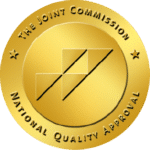The use of ritual can be a powerful tool in supporting your mental health and well-being in recovery. It allows you to connect to something greater than yourself, provides an outlet for prayer, and can be the start of beginning to forgive and connect with yourself and others. If you weren’t exposed to the use of ritual as a child, the idea of inviting this into your life may seem scary, foreign, or even strange. There is no need to force anything and I would like to offer 4 simple ways to begin to invite ritual into your life. As you begin to feel more open to the idea of ritual, you may want to seek out more ways to include it in your healing process.
1. Write a List. Write a list of 5 things you are grateful for. Today, my list includes being able to hear the birds chirp and feeling the warm sun on my skin. My list another day may include being grateful for specific people in my life or the food I eat. There is not a right or wrong way to write your list. One day you may focus on things like feeling grateful for a warm bath and a hot cup of tea and another day you may find gratitude in not having an urge to use. This can be a daily practice that you write or even speak out loud. It can be done at any time of the day, but may be especially powerful first thing in the morning or just before bed. If making a list in this way still does not sound appealing, try just saying the words, “please,” and “thank you” silently to yourself when you feel called to do so and see if your heart and mind begin to open toward finding joy and gratitude in simple and profound things in life.
2. Touch the Earth. The earth, by nature, is grounding and soothing. Doing yard work, going for a walk, or simply watching the animals in your backyard truly counts of a ritual. Anything done consciously, and with the intention of connecting to something deeper, is a ritual. You may find you like connecting things in nature such a rocks, or other found objects on an evening walk. You may find that gardening first thing in the morning sets you up and centers you for your day. Simply taking a few moments to watch the leaves in the breeze or to watch the squirrels play on the branches overhead has the potential to shift your mindset and perspective.
3. Nourish Yourself. Take a bath, write a love letter to yourself, get a pedicure, call a friend, or buy yourself something small that you love (latte, anyone?). Part of being in recovery is learning to gift yourself the small things you’ve been depriving yourself of all these years. When you are using drugs or alcohol to fill or conceal emotions, you are not able to listen to your own deepest desires and wishes. Being in recovery means that you are now able to begin to listen to your body and truest sense of self and start to nurture and heal one moment at a time.
4. Affirm Yourself by creating an “I am…” statement that you want to say out loud or silently to yourself. I find this usually works best when it comes from within and when the words come out easily. Some ideas to get started: “I can do this,” “I am free to be me,” “I deserve to feel good,” “I am releasing my fear of not being good enough (or deserving enough, or successful enough).” You can repeat your phrase, or mantra, either a few times or many times over and over again until it feels complete. After you’re finished, move on to the next part of your day. Do this as a daily practice, if possible.
Some of these ideas may not resonate, and that is okay. Start small and do what feels comfortable. As you begin to be open and learn what supports your recovery, you will naturally crave more of these tools and begin to naturally do them without having to put too much effort towards them.










